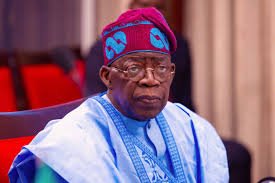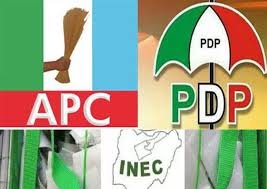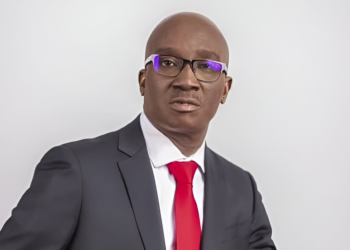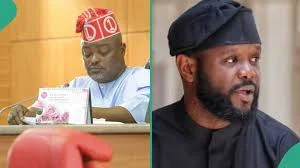Although the September 21, and November 16, 2024 governorship elections in Edo and Ondo States are still months away, key processes leading up to the off-cycle polls are already underway. According to the time table released by the Independent National Electoral Commission (INEC), by February 24, all political parties in Edo State are expected to have concluded their governorship primaries, while the governorship election campaigns will start on April 24. For the governorship election in Ondo State, which is scheduled to hold on November 16, 2024, the political party primaries are expected to hold from April 6 to 27, while campaigns are set to get underway on June 19, 2024. As various political activities unfold in line with this important timeline given by the Election Management Body (EMB), there is the substantive issue of ensuring the political process is peaceful and that the elections provide the avenue for voters in the two states to express their democratic choices in line with international and domestic principles, which govern free, fair and credible polls.
A key aspect of this push for credible elections is the need to ensure the integrity of the information, which voters and other stakeholders would be accessing before, during and after the elections. Put another way, the character of the campaigns by the political parties should be such that would energize the active participation of all groups of citizens in the electoral process. This further implies that proactive measures would have to be in place to counter the threats posed by disinformation, and the spread of fake news all through the electoral process. As seen in recent elections, if the campaign trail is characterized by toxic, violent and false narratives, the participation of voters in the electoral process would be undermined. The circulation of false narratives has the sordid effect of confusing voters and inducing apathy on Election Day. This fact is very much in line with research findings, which indicate that disinformation operates in a disorganized way that undermines the participation of citizens in important civic processes like elections.
Data from West Africa’s elite pro-democracy think tank, the Centre for Democracy and Development (CDD) based on experiences from the 2023 general elections, has been quick to pin point the effect of disinformation and misinformation on the participation of voters in the electoral process. The evidence shows that misinformation on social media leads to the confusion of citizens and the entrenching of pre-existing divides. These realities present a big threat especially in a country like Nigeria where ethnic and religious fissures can easily be exploited for partisan advantage by political actors. The effect of disinformation on the participation of historically marginalized groups like women, the youth and people with disabilities remains a huge concern for pro-democracy activists.
During recent elections in Nigeria, the electoral outcomes were replete with cases of gendered disinformation, involving misogynistic abuse and violence against women. Civic groups and information experts have also tracked the use of false or misleading gender and sex-based narratives, which were aimed to deter women from participating in the political process.
In Edo State, the conversation about where the pendulum should swing with respect to the governorship has sparked an identity-driven debate focusing on the three senatorial districts of the State. While Edo Central Senatorial district has staked a claim for the governorship on the basis of rotation, especially as the other two Senatorial zones have just recently produced the governor, politicians from the other two zones have been trying to blunt the claims of rotation by presenting themselves to contest for the ticket of the party.
In Ondo State, several politicians are have thrown their hat in the ring and part of their strategy to win the nomination of their respective political parties is to resort to identity politics. Identity politics, which focuses on ethnicity or geo-political origins could become the basis for false narratives to be spread to affect the chances of opponents perceived to be capable of winning the party nomination and the election itself. Disinformation and the spread of false narratives could be crafted along lines, which could hoodwink voters in order for the voters to make choices they never intended to make.
In the light of the experiences from the 2023 general and off cycle governorship elections in Kogi, Bayelsa and Imo States, another critical issue to consider is the impact of disinformation on not just the electoral process, but Nigeria’s democratic consolidation. Given the wide ranging and disorganized way in which disinformation works to undermines the interest of voters at the grassroots, while distorting the incentives, which should propel the participation in civic life, it is the collective responsibility of all stakeholders to adopt strategies to counter all shades of disinformation spreading in the information space.
Given the outsized influence of disinformation and its massive impact on the sanctity of the electoral process, several think tanks have been introducing programs to counter it. This for example is the objective of the innovative project titled; Countering Disinformation in West Africa. With funding from Global Affairs Canada (GAC) and technical assistance from the National Democratic Institute (NDI), frontline elite think tank, the Centre for Democracy and Development (CDD) has devoted substantial time and resources to building the capacity of fact checkers and information experts to engage in robust fact checking and information literacy campaigns.
At the heart of these efforts is the task of building the skill and capacities, which will enable fact checkers to proactively monitor social media. The reality remains clear that more information available on social media does not translate to an informed citizenry. The realization that certain kinds of information available online could undermine the civic consciousness of citizens, particularly marginalized groups, has made it necessary to put the spotlight on gendered disinformation. The CDD project has thus provided a strong entry point for a sustainable strategy to tackle disinformation using a mix of off and online approaches. As voters in Edo and Ondo prepare to get their voices heard through the ballot, these efforts towards ensuring information integrity would prove critical in ensuring the supremacy of the will of voters.


























